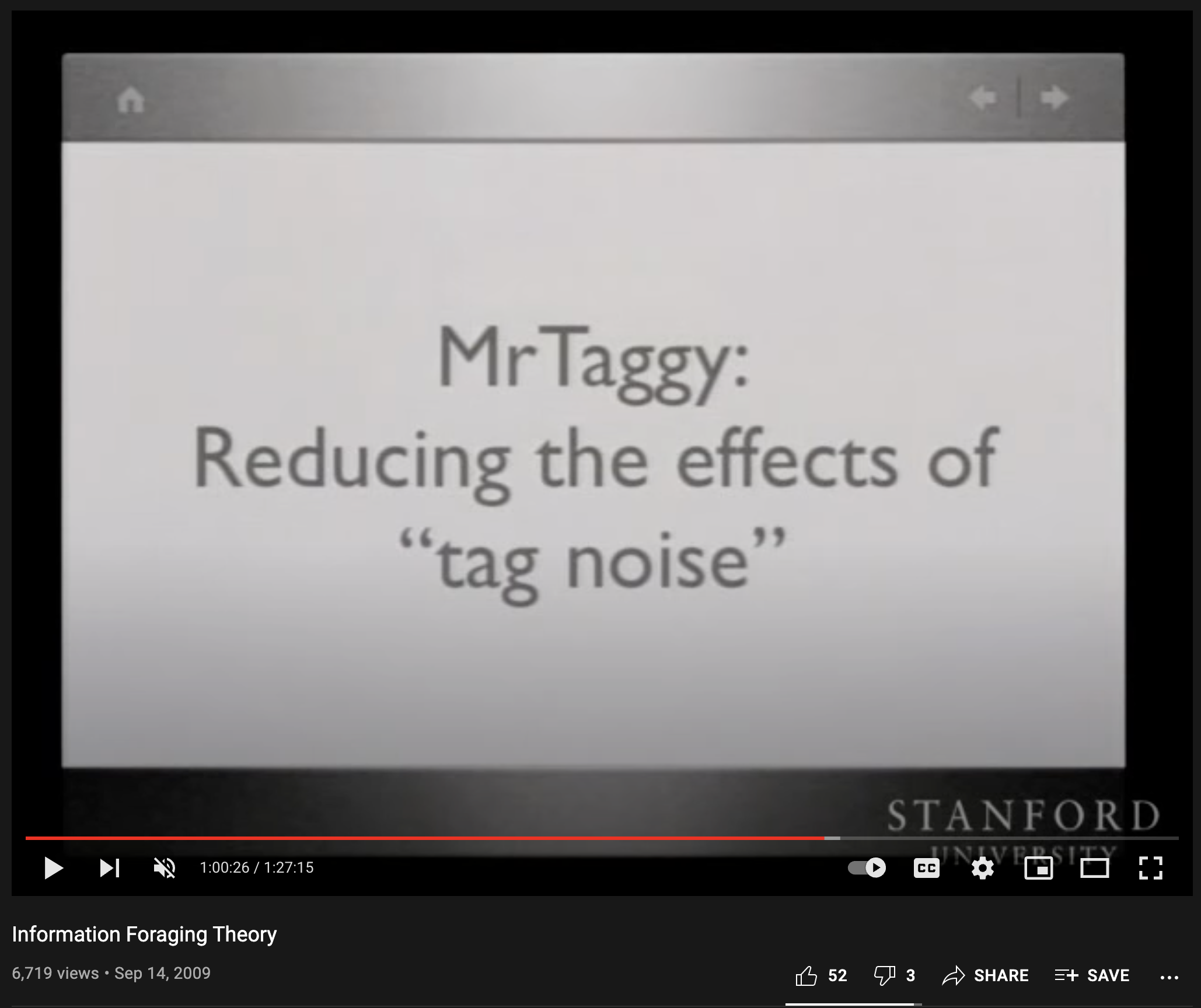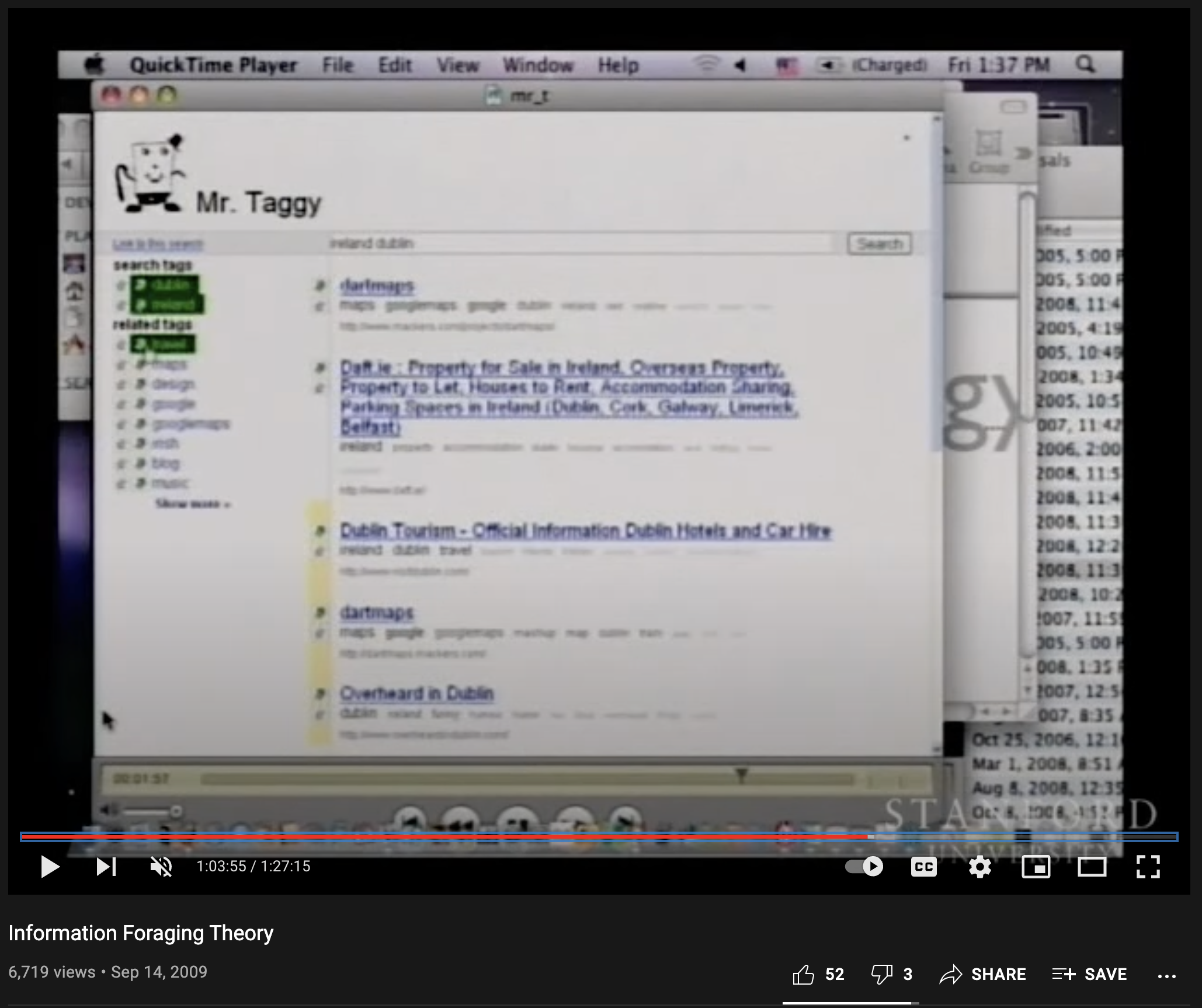Information Foraging Video
Yochai Bankler makes the argument in Wealth of Networks that people have a wealth of idle attention. Open source, Wikipedia, etc. has some architecture designed for many people to contribute in modular ways without needing to worry about the contributions of others. 40:30
When you look at these systems, what is it that you construct in these systems that makes these systems, in the aggregate, have more knowledge in them, behave more intelligently, produce more innovations, or be more productive in general.
If you’re into the world of UI design, what do I do at the level of individuals and individual user interfaces that have properties that percolate upward into the aggregate social architecture?
How do people acquire and transfer knowledge and expertise in a decentralized discourse graph
Around 43:50: StumbleUpon had a user rating system that went from rating content on a spectrum from 1-10, then 1-5, then upvote/downvote. Each time they reduced the range of the scale, they would get more participation. This is used to justify the claim that reducing the effort to participate increases participation.
Starting from 49:00, they are talking about research in increasing participation rates in social tagging. Primarily trying to solve
- Increase participation through lower effort tag production
- Increase individual tag production rates
- Increase learning and memory
- Reduce effects of “tag noise”
- Support the transfer of expertise
Around 1:00:00, they introduced Mr. Taggy. This is similar to Interactive Intent Modeling for Exploratory Search insofar as it shows you a bunch of socially generated tags, allows you to narrow it down by filtering tags in or out of the search results (like Roam’s backlinks filters). This allowed people without prior background knowledge to learn a new domain about as well as those who came in with prior knowledge. This addresses a core problem in exploratory search with new domains: often you can’t find what you are looking for because you don’t know the vocabulary of the field. You enter the space searching for answers with a vocabulary that doesn’t match the space. By seeing the most frequent tags in order from top to bottom, you are able to pick up on the vocabulary more quickly. Since these social tags were generated by experts, this facilitates the transfer of expertise to newcomers. Waldo has a similar interface

